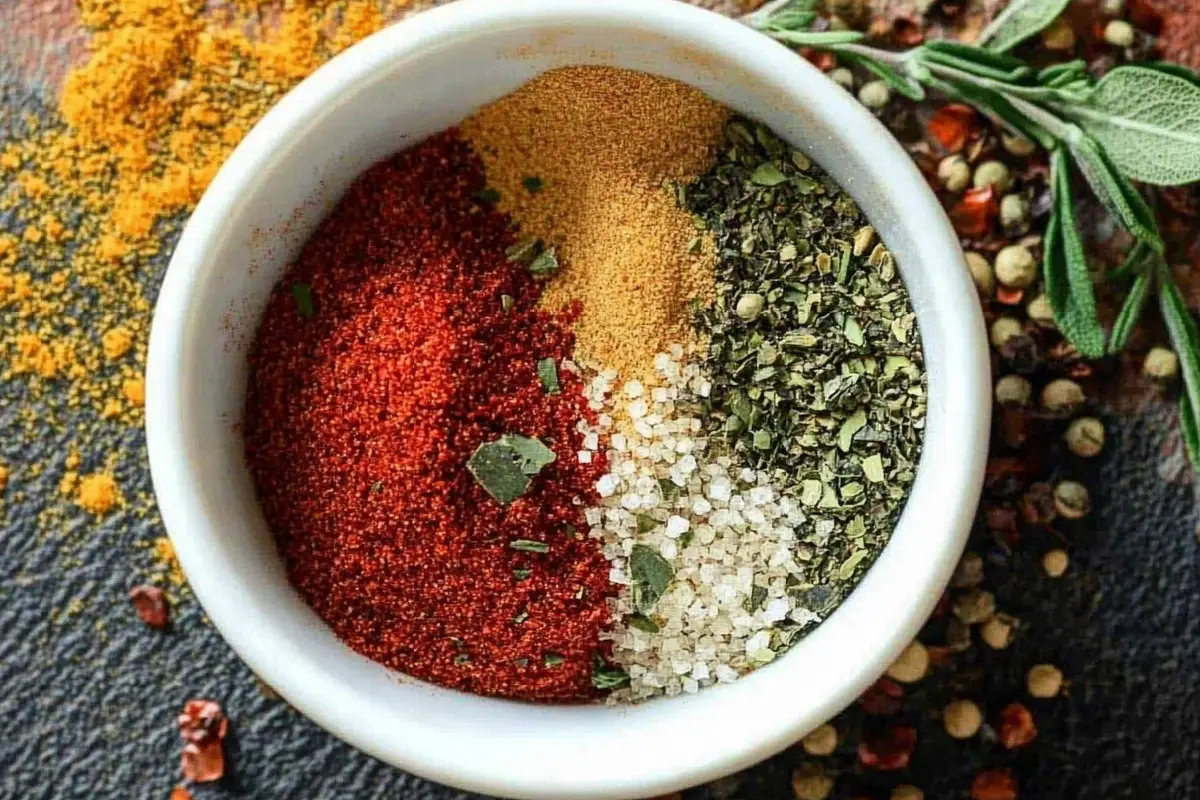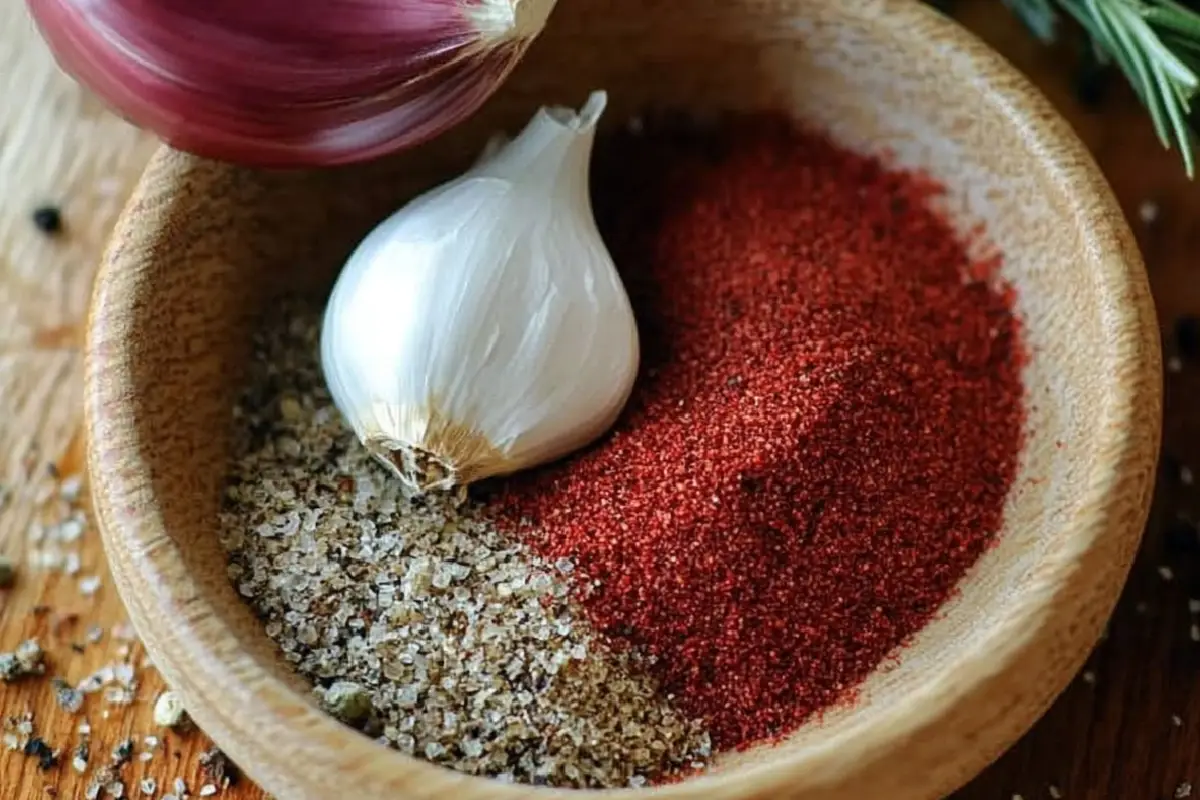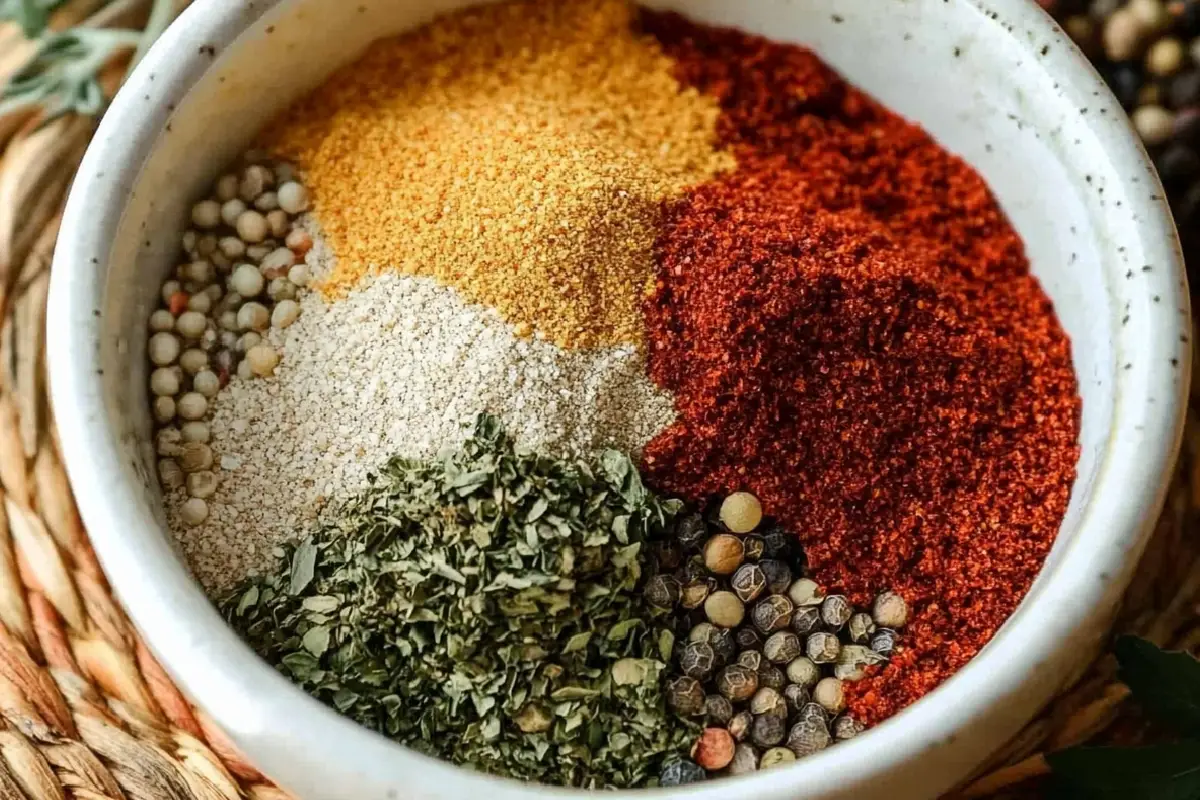Introduction to Which Spices Is Best For Stew?
Stew is one of the most comforting and versatile dishes across the globe. It warms the soul on cold days, and the beauty of stew lies in its ability to adapt to various tastes and flavors depending on the region or the type of ingredients used. One of the most crucial elements that take a stew from good to exceptional is the combination of spices. The right spices can transform your stew into a flavorful masterpiece, bringing depth, richness, and warmth to every bite.
Whether you’re making a classic beef stew, a light chicken stew, or a rich vegetarian stew, understanding how to balance and use spices is essential. In this guide, we’ll dive deep into the best spices for stew, explore spice combinations from different cuisines, and offer practical advice on maximizing flavor. By the end, you’ll feel confident experimenting with spices to create the perfect stew every time.
Which Spices is Best for Stew? Essential Herbs and Seasonings You Need
Before we get into the best spices for stew, it’s important to distinguish between herbs and spices. Both are used to add flavor, but they come from different parts of the plant:
- Herbs come from the leafy, green parts of plants (think thyme, rosemary, and oregano).
- Spices come from other parts, like seeds, roots, bark, and even fruits (such as cumin, paprika, and cloves).
Herbs are often added toward the end of the cooking process to retain their fresh flavors, while spices can be added early on, allowing their robust flavors to develop as the stew simmers.
For more on how to incorporate herbs effectively, you can refer to this guide on how to cook with fresh herbs.
Discover Which Spices is Best for Stew to Elevate Your Cooking

No matter what type of stew you’re making, there are certain classic spices that you can always rely on to provide depth and enhance the flavor of your ingredients. Here’s a list of the most essential spices for any stew:
1. Bay Leaf
Bay leaf is one of the most common and important spices for stew. Its subtle, slightly floral flavor adds depth without overpowering other ingredients. Add one or two bay leaves to your stew at the beginning of cooking, and remove them before serving. Bay leaves work especially well in beef and vegetarian stews.
2. Thyme
Thyme is a staple in many types of stew, particularly those that are meat-based. Fresh or dried, thyme adds a savory, earthy flavor that complements rich meats like beef, lamb, and chicken. It’s also a fantastic herb for vegetable stews, adding complexity without overpowering the dish.
3. Rosemary
This aromatic herb pairs beautifully with lamb and beef stews, imparting a bold, pine-like flavor. While rosemary is often used fresh, dried rosemary is equally effective. It’s best added early in the cooking process so that its flavors can mellow as the stew simmers.
4. Paprika
Whether you opt for sweet or smoked paprika, this spice adds warmth and a slight smoky undertone to your stew. Paprika is particularly effective in tomato-based stews and adds a beautiful red color. It’s widely used in Hungarian and Spanish stews, like goulash and chorizo stews.
5. Black Pepper
Black pepper is a universal seasoning, but it’s especially important in stew. Freshly ground black pepper adds a gentle heat and enhances the flavors of other ingredients. Use it liberally in beef, chicken, and vegetable stews alike.
6. Garlic Powder
While fresh garlic is often used, garlic powder can add a concentrated depth of flavor that permeates the broth. Its savory, slightly sweet profile is ideal for both meat and vegetarian stews.
7. Cumin
Ground cumin lends a slightly nutty, earthy flavor with a hint of spice. It’s perfect for stews with Middle Eastern or Mexican influences and adds warmth without being overpowering. Try using cumin in lamb stews or vegetarian versions featuring beans or lentils.
For a delicious and easy way to enhance your stew, try this seasoning method outlined in the recipe for beef stew seasoning for rich flavor.
Which Spices is Best for Stew? Global Spice Guide for Flavorful Stews
The beauty of stew is its adaptability. Across the world, different cultures have developed their own unique spice blends to enhance the flavors of local ingredients. Here’s a look at how different regions approach spicing their stews:
Mediterranean Stews
- Oregano, basil, thyme, rosemary, and bay leaf are the primary spices in Mediterranean stews. These herbs create an earthy, aromatic base perfect for tomato-based stews.
- Popular in Italy and Greece, these herbs pair perfectly with vegetables, chicken, or lamb.
- Olive oil, garlic, and tomatoes often accompany these herbs, creating a savory, bright flavor profile.
Indian Stews
Indian stews are known for their complexity and layering of spices. Traditional spices for Indian stews include:
- Cumin: Adds an earthy, nutty flavor.
- Coriander: Lends a citrusy note.
- Turmeric: Provides a warm, golden color and mild bitterness.
- Garam Masala: A blend of spices, including cinnamon, cloves, cumin, and cardamom, garam masala is typically added at the end of cooking to finish the stew with a burst of flavor.
- Cinnamon and Cardamom: These spices add sweetness and warmth, particularly in lamb and chicken stews.
African Stews
In North and East Africa, stews are spiced with bold and warming blends:
- Berbere Spice: A fiery blend of cumin, paprika, cloves, and cardamom, this is essential in Ethiopian stews.
- Nutmeg and Cloves: Frequently used in North African lamb stews, these spices add a sweet, rich flavor.
- Cinnamon: Adds a hint of sweetness, balancing out more savory elements.
Asian Stews
In East and Southeast Asia, stew spices create complex layers of sweet, savory, and umami flavors:
- Star Anise: A key ingredient in Chinese and Vietnamese stews, star anise adds a licorice-like sweetness.
- Ginger: Fresh or ground, ginger adds brightness and spice.
- Lemongrass: In Southeast Asian stews, lemongrass provides a fresh, citrusy flavor.
- Soy Sauce: Adds umami and saltiness, making the broth rich and flavorful.
For a unique take on stew, try exploring bold global flavors like those found in our recipe for easy hot honey — perfect for balancing out spicy stews.
Which Spices is Best for Stew? Pairing Spices with Different Types of Stew
Beef Stew
A hearty beef stew calls for robust, savory spices. The following combination will enhance the natural richness of the beef:
- Bay Leaf: Adds subtle depth.
- Thyme: Earthy and savory.
- Rosemary: Bold and aromatic.
- Black Pepper: Adds heat and balance.
- Paprika: Smoky and warm.
For a deep, rich flavor, try adding a splash of red wine or beef broth to your beef stew. For a full meal, pair your stew with sides like cheesy mashed potatoes, which will soak up the flavorful broth.
Chicken Stew
For a lighter, more delicate chicken stew, use a different combination of herbs and spices:
- Basil: Sweet and aromatic.
- Rosemary: Adds depth without overpowering.
- Thyme: Complements chicken’s mild flavor.
- Turmeric: Adds warmth and color.
- Paprika: Brings a mild heat and smoky undertone.
Lamb Stew
Lamb is a rich, flavorful meat that pairs well with warming spices:
- Cumin: Adds an earthy, nutty flavor.
- Coriander: Provides a bright, citrusy note.
- Cinnamon: Sweetens the richness of the lamb.
- Cardamom: Adds a floral, sweet aroma.
- Rosemary: Complements the strong flavors of lamb.
Vegetarian Stew
For a vegetarian stew, you’ll want spices that add complexity and warmth without overpowering the vegetables:
- Paprika: Adds warmth and a smoky depth.
- Turmeric: Adds earthiness and color.
- Curry Powder: A blend of spices that provides heat and complexity.
- Fennel: Adds a light, sweet, licorice-like flavor.
Vegetarian stews benefit from a variety of textures, so consider adding legumes like lentils or chickpeas for added heartiness.
Which Spices is Best for Stew? Create the Most Flavorful Dishes with These Tips
Creating the perfect stew isn’t just about throwing spices into the pot. It’s about understanding how to balance those flavors. Here are some tips to help you achieve the right balance in your stew:
Start Small
When it comes to spices, it’s always better to start with less and add more as needed. Remember, you can always increase the spice level, but it’s much harder to fix a stew that’s been over-spiced.
Layer Your Spices
Different spices need different amounts of time to release their flavors. Add aromatic spices like bay leaf and thyme early in the cooking process. Stronger spices like paprika and cumin can be added midway through cooking.
Seasoning is Key
Spices alone aren’t enough to make a great stew. Be sure to season your stew properly with salt. Salt helps bring out the natural flavors of both your spices and your main ingredients.
Add Acid for Balance
If your stew is tasting too rich or heavy, try adding a splash of acid, such as vinegar, lemon juice, or even a dash of wine. Acid helps to cut through the richness and balance out the flavors of your spices.
For more advanced seasoning techniques, check out this recipe on how to create a flavorful easy crack burger.
Which Spices is Best for Stew? Your Ultimate Guide to Stew Seasoning
To get the most out of your spices, here are a few advanced techniques that will enhance the flavor of your stew:
Toast Your Spices
Toasting whole spices like cumin, coriander, and fennel before adding them to your stew will bring out their essential oils, intensifying their flavor.
Bloom Ground Spices
When using ground spices, it’s a good idea to bloom them in oil or butter at the start of your cooking process. This will release their full flavor and fragrance.
Use a Bouquet Garni
A bouquet garni is a bundle of fresh herbs tied together or placed in a cheesecloth bag. It allows you to infuse your stew with herb flavors and easily remove them before serving. Common ingredients include thyme, bay leaves, and parsley stems.
FAQs About Which Spices Is Best For Stew

What is the best spice for beef stew?
The most popular spices for beef stew include bay leaf, thyme, rosemary, black pepper, and paprika. These spices help enhance the rich flavor of the beef.
Can I use fresh herbs instead of dried ones?
Yes, fresh herbs can be used in stew, but it’s important to add them toward the end of the cooking process to preserve their delicate flavors. Dried herbs can be added early on and will develop more intensity as the stew simmers.
How long should spices simmer in a stew?
To extract the full flavor of your spices, allow them to simmer for at least 30 minutes. For more robust spices, simmering for up to an hour can deepen their flavor.
Conclusion: Which Spices Is Best For Stew
Spices are the key to transforming a simple stew into a rich, flavorful dish. By understanding how to balance flavors and using the right combination of spices, you can create a stew that’s bursting with complexity and depth. Whether you’re preparing a beef stew, chicken stew, or vegetarian stew, don’t be afraid to experiment with global spice blends to add new dimensions to your cooking.
With the right combination of spices, your stew will become the ultimate comfort food, perfect for any occasion.

